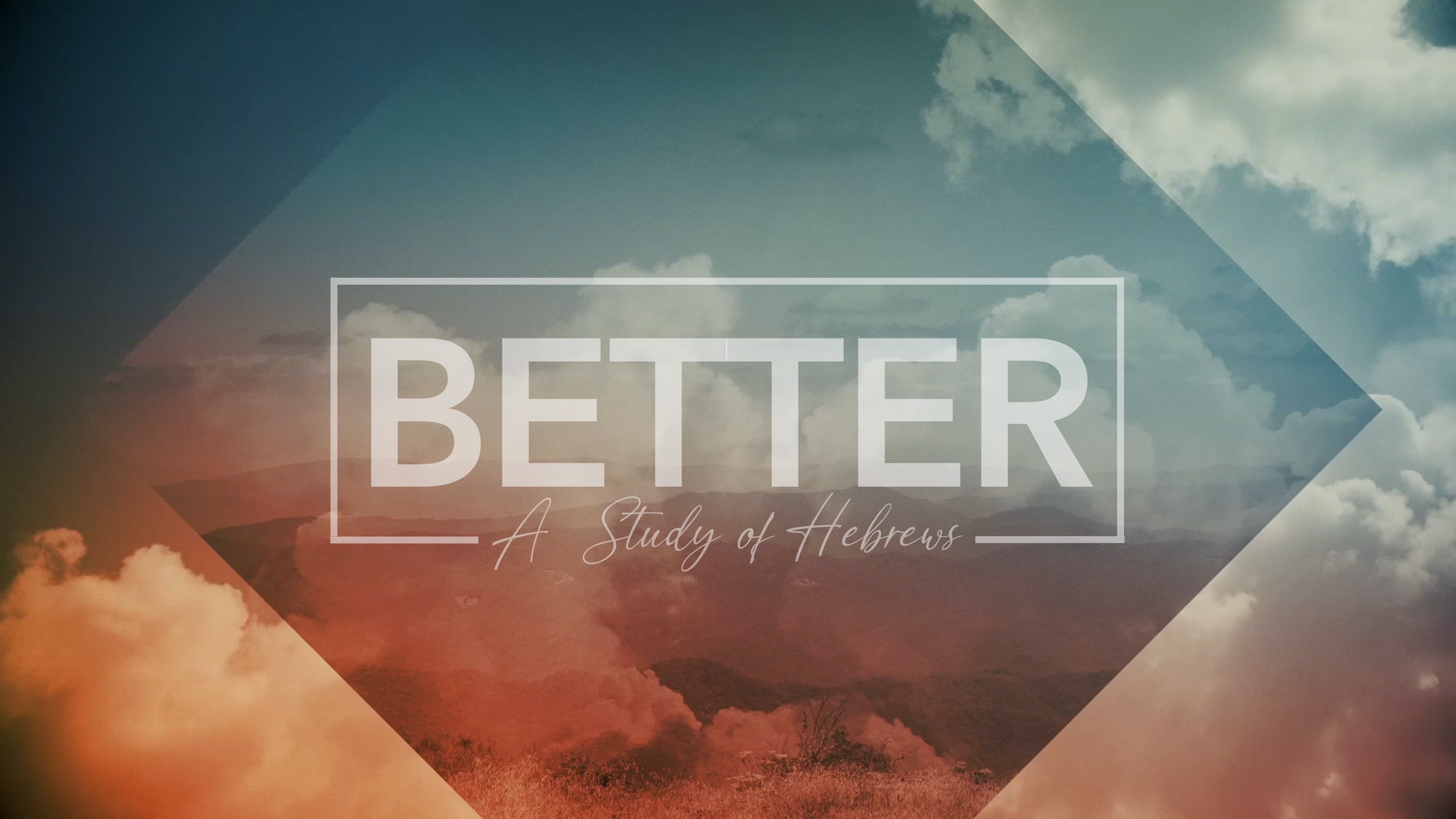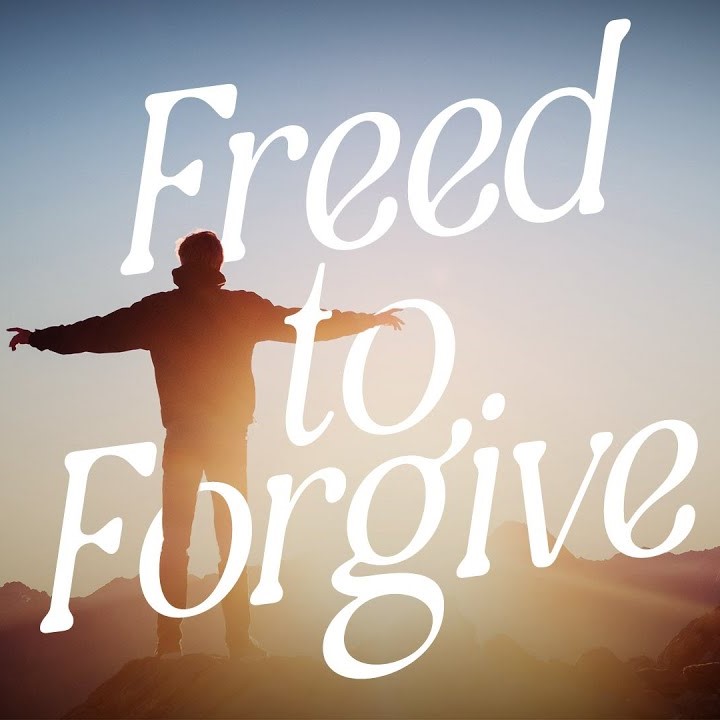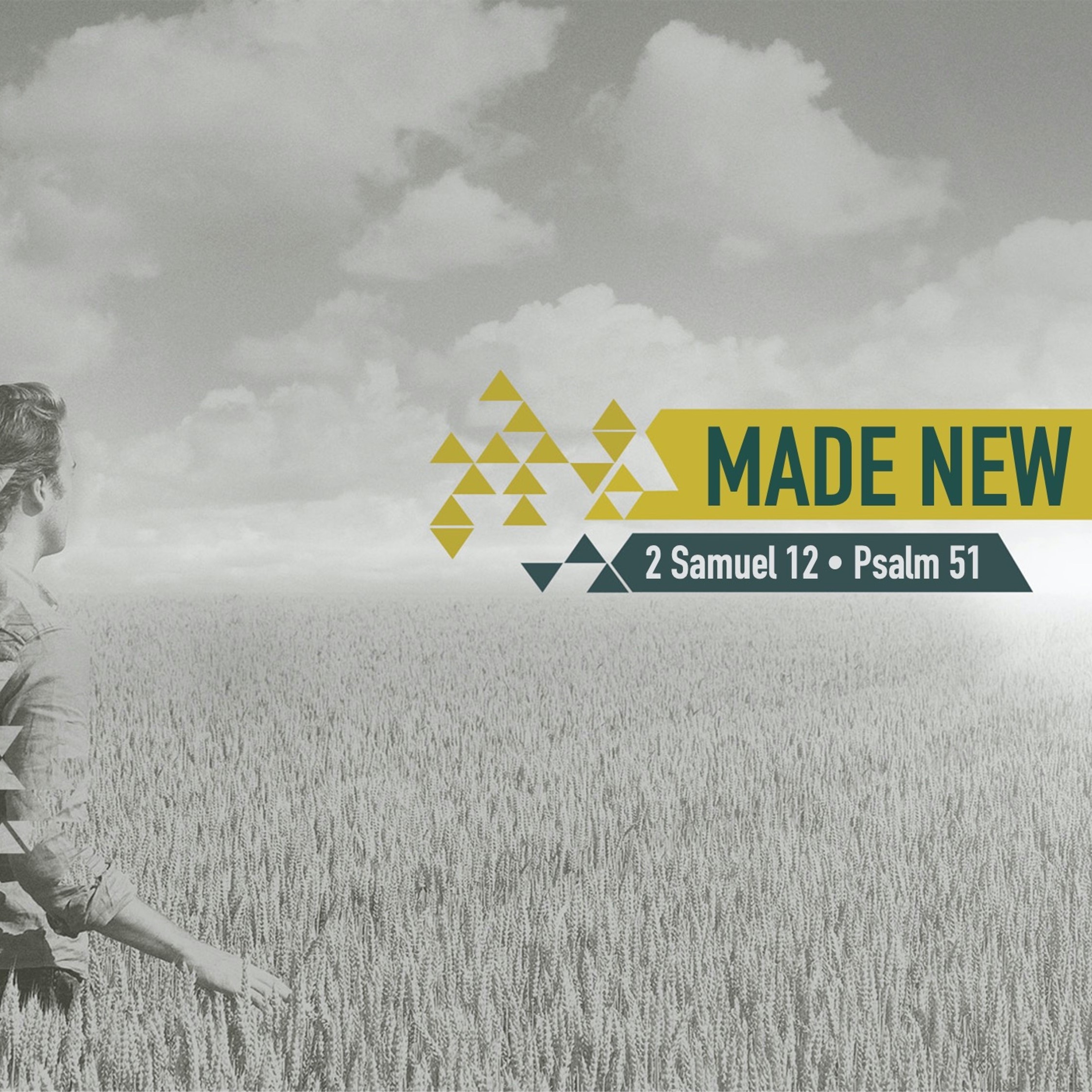View Full Transcript
Episode Transcript
[00:00:01] Speaker A: Hey, thanks so much for listening to this message. My name is Jason and I'm one of the ministers here at the Madison Church of Christ. It's our hope and prayer that the teaching from God's Word you hear today will bless your life and draw you closer to Him. If you're ever in the Madison, Alabama area, we'd love for you to worship with us on Sundays at 8:30 or 10:30am if you have any other questions about the Bible or want to know more about the Madison Church, find [email protected] Be sure to also check out our Bible study podcast, Madison Church of Christ Bible Studies. Thanks again for stopping by.
[00:00:37] Speaker B: A couple months ago, I don't remember if it was a devo or if it was preaching, but one of my friends, John, y' all know him really well, he interned here two years ago. Love that guy. He's amazing. Shout out, John. Love you, man. But he was giving this devo or lesson, whatever it was, and he said this idea that kind of stuck with me.
He said that every single person asks themselves the same three questions in life.
The first one is, well, who am I?
What is my identity? What are my beliefs? Like. Like, who am I? The second one similarly is in light of who I am, what's my purpose?
What does my vision for my life look like? The goals that I set, that I make? What. What is my purpose?
And the third one is, well, who am I doing life with?
One of my good friends, his name is David Langston. He goes to Flint Church of Christ and he taught one of our Bible classes one quarter. And I believe that every single Bible class at some point he said, show me your friends and I will show you your future.
The reality is that for most of us, we are compiling or we are basically a reflection of the five most influential people in our life, the five closest friends.
And while I think that's true, I think there's a fourth question that I want to tack on, and that is in light of who I am, in light of my purpose, in light of my people.
Well, what's next?
What's my next step that I'm going to take for you guys, especially that you probably get asked this question all the time, right? You're in high school, Are you going to college? Are you going into the workforce? Are you going to trade school? Are you going to the military? All those things are fine and awesome things. But I mean, what's next for you?
Maybe you're at the next step, you're in college and you're Trying to figure out, like, okay, I have this degree, I have this piece of paper that apparently makes me really smart.
What am I going to do with it? Am I even going to use it at all?
Am I going into this job or in this field that I've studied?
Maybe you're looking for someone. Like, what's next? I'm looking to get married. I'm looking for a spouse or something like that. Like me.
Maybe you're there, you're like, what's next with that? Or maybe you found them and you're like, okay, well marriage is around the corner. What's next with that? What does that look like? Or you're there and you're like, well, are kids around the corner? Like we doing that? What does that have in store for us? Maybe you already have kids.
Parenting a 2 year old and a 15 year old isn't the same at all. Like, what's next with parenting? How is that going to change over the next few years? Maybe you're past that and you're looking at retirement.
With all this extra time that I'm going to have, how am I going to spend it? How am I going to be around family?
What does that look like? All of us throughout our life are constantly asking ourselves, what is next and what does that look like?
And that's the question that Paul intends to answer for the rest of the book.
That therefore, it may be in your Bible, it may not. But in the Greek language, there was this therefore at the beginning of chapter 12. And what it does, it effectively splits the book in half.
See, before it, he's talked about our identity. We used to be these sinners. We, we used to be like that. All have sinned and fallen short of the glory of God. But now we live in Christ.
We are people of faith. We stand in grace.
Not only that, but we used to be these slaves to sin.
We literally couldn't stop sinning. But now we are the slaves to righteousness.
And not only that, but we have the Holy Spirit that is with us.
And I can kind of see like as this is being read for the first time in the Roman church, like these Jews who thought they were awesome and way better are sitting over here and the rest of the Roman church are sitting over here. And Paul just goes through and says, jews, you think you're cool. Guess what? No, you're not. All have sinned, right? All of you are the same. You're all sinful. In fact, in chapter 10, verse 12, he says, oh, sorry, wrong pass. In chapter 10, verse 12. He says, there's no distinction between the Jew or the Greek. We're all one now with Christ, our people.
The people sitting down the pew from you on the other side of the church and the top and the bottom, that's our people.
Okay, so Paul, in light of all of these things that we've established, in light of who we are, our purpose and our people, well, what is our next step?
And what does that look like?
Like any good speaker or preacher or whatever it is he tells you right up front. He summarizes everything into one verse. I appeal to you, I urge you, I exhort you, brothers, by the mercies of God, that you present your bodies as a living sacrifice, holy and acceptable to God, which is your reasonable service or spiritual worship.
And I really dug into that text about a month ago on Service Sunday and talked about this. But this is just a summary of everything that Paul is going to talk about and everything that's coming.
And then he says this.
Don't be conformed to the world, but rather be transformed by the renewing of your mind that you may.
That by testing you may discern what is the will of God, what is good and acceptable and perfect.
So what's next? Well, for us as Christians, in light of who we are and everything else, our next step is this transformation.
And it begins at the point we're baptized, at the point that we begin our journey. No matter if you're a day one Christian or a couple weeks old or a couple month old Christian, or you've been doing this, you've been walking with God for 70 years, there's always more of a transformation that can happen.
We can always look and be more like our Christ. And that's the beautiful thing of the gospel, is that there's always more ways that we can be transformed. But he says before that he gives a warning, do not be conformed to the world. And this is my opinion, this is my thought, that the reason he puts that warning first and he warns them in other places throughout this text is because it's so easy for us to get sidetracked.
I believe this. And maybe you've never struggled with this, and if so, that's okay. But I believe that most everyone in this room at some point has struggled with wanting or being okay with looking like everyone else.
I mean, maybe you have that neighbor, they have a little bit nicer house, maybe a little bit nicer car, maybe their family looks a little bit more like yours wants it too.
And they're not Christians. They don't Come to church and all this stuff. But they seem to have lives together, right?
And what they're doing is not that much different. Like, they work on Sundays and all this stuff instead of worshiping God like he's asked us to. Or. Or maybe they do this or do that. Their lives, they're not far off from mine. They're still pretty good people.
See, I feel like that's a temptation that every single one of us fall to this. If everyone else is doing it, then it must be. It must not be that bad.
It must be okay.
I think all of us on some level, have struggled with that.
I believe that's why he puts it first. No, no, no. Don't be conformed to the rest of the world. You want to take this next step. You're ready to be transformed. You're ready to move forward.
Don't get caught looking this way, looking that way.
And then he transitions. He says, okay, well, don't get so caught up in everything else. But also, for by grace given to me, I say everyone among you not to think of. Of himself more highly than he ought to think, but to think with sober judgment, each according to the measure of faith God is assigned. Look. No, no, no, don't. Also, you're not trying to be like everyone else. You're not trying to be like the world. But also make sure that you're not thinking of yourself more highly than you are.
And I think that that happens from time to time. But the reverse is also true.
That because we have these differences that, well, this person, well, they're more important than I am.
And Paul illustrates it in verse four as this body. In verse four, he says, for just as we have many members in one body, and all the members do not have the same function, so we who are many are one body in Christ.
I think that we do struggle with pride, but we also struggle at times with thinking less of ourselves.
The truth is the fact that we are different. The fact that maybe you're a hand or a knee or whatever you are that builds up this body, this church that we are.
Well, our differences don't define our value.
Whether we think we're high and awesome or we think low of ourselves.
In Luke chapter 15, he gives the parable of the sheep and says, what? Shepherd, having 99 realizes that 1 is gone, doesn't go find it?
Well, it doesn't matter what the sheep looks like. The nationality, the ethnicity, the gender, age. It doesn't matter any of those things. What matters is the fact that the sheep is a Sheep.
And the value isn't placed on us and what part of the body that we are or what God has given to us, but rather that we're loved by Him. He puts the value on us, not the fact that we are different.
And then he continues in verse six.
And this is where we get to the stepping part, right? This transformation. I'm talking about, Eli, Paul, tell me how this is going to happen here. He says, having gifts that differ according to the grace given to us, let us use them. If prophecy in proportion to our faith, if service in our serving, the one who teaches in his teaching, the one who exhorts in exhortation, the one who contributes in generosity, the one who leads with zeal, the one who does acts of mercy with cheerfulness.
This is not an exhaustive list.
Paul has plenty of other lists throughout the epistles that he gives that include some of these and doesn't include others.
But here's what Paul is getting at. You we're all different, right? And God has given you something.
He's given you something, whether it's Bible class teacher generosity.
You're great at greeting the people who walk through the doors that. That maybe don't know what this is.
You're great at having those conversations. You're great at maybe walking through the Bible and the Gospel and what that is and explaining that to people. Maybe you're good at really helping people take that next step deeper into their faith. Maybe you're just great at sitting and listening when people are going through tough times. God has given you something.
It's us, to us, to find this unique gift that God has given each and every one of us and to refine it and use it.
That's our next step in transformation, is continuing to get better at the things that God has already given to us.
Earlier in verse two, he said, don't be conformed to the world. Be transformed. And then he said, by the renewing of our mind.
And this next passage kind of explains to us how this renewing of the mind happens, right?
Let love be genuine.
See the love that we have, it's not something where we walk in these doors three times a week and we put on this mask of, all right, I gotta be a lovable guy. Someone that other people are like, man, he's just a dude who loves other people. No, no, no. Like, let love be genuine or without hypocrisy. It's a lifestyle. We carry it into every single thing that we do is this love that we have for other people, right?
This love Let love be genuine.
Abhor or hate the things that are evil, but on the other hand, hold fast to what is good.
I find it difficult to.
I don't find it difficult to hate things or the things that are evil, but I do feel like that I'm a little bit desensitized to that.
I was watching something this past week and I was like.
I looked at it, I was like, what in the world is this?
Like, what is this junk?
What is happening? How did I get to where, like, this is okay to me, and obviously I don't think it's okay, or I don't condone any of that stuff, but, like, it's just. It creeps in.
It's easy to be. To be passive about evil instead of truly just abhorring or hating.
I think that's something that all of us struggle with. Like I said earlier, it's easy to get caught up in being like the world. It's also easy to just be permissive a little bit to evil, to sin.
Love each other with brotherly affection.
It's this type of love that the person on the other side of the auditorium, you can call that guy at 2am in the morning and guess what? They'll throw on clothes and get out of the house and go and help you if you're in need. That's the type of brotherly. This family love. We love each other like we're a family now.
Outdo one another and showing honor.
Correct me if I'm wrong, but it was a year ago, maybe two years ago, that y' all had the theme of the year of the culture of prayer, right?
Was that a year or two ago? Right.
I'm not seeing any heads nodding. I'm going to just assume that is right, hopefully.
What if we did the exact same thing, but instead of prayer, which prayer is awesome. Y' all have done absolutely amazing on that. I see that everywhere.
But what if we created a culture of honor where we see someone that's just killing it, that's doing awesome, that's doing amazing things, and we can't help but praise them and then go tell other people of all the cool, amazing things, things that they're doing, that my announcement list on Sunday Morning is just full of all of these people who are like, man, I just want you to. Can you just tell everybody about how awesome this person is doing, how amazing how we can see God working through them?
And it gets so full that I can't get to all the names. Why? Because we love each other with this Family, love. We want to just build each other up. We want to just honor people and tell them, man, you're doing such a great job. What if we built a culture of honor where we just do that all the time?
How amazing would that be?
Do not be slothful in zeal, but be fervent in the spirit.
I haven't finished school, so I had to look that up.
It's okay, you can laugh. I'm not very smart.
Ha ha ha. Anyways.
But what he's talking about, there is motivation, man. There are days, and I don't know if you're the same way. There are days when I wake up and I'm just not motivated to take that next step.
I'm not motivated to put in the time, the energy, and the effort to do all of the other things that we've been talking about, but rather be fervent in the spirit. Find ways to motivate yourselves to continue this process of transformation.
Rejoice in hope.
As I was thinking through this, I couldn't remember the last time I just realized I had hope.
And I don't think that's something that we don't think about very often. We have hope to be in the presence of God one day. How awesome is that?
And he's saying, rejoice. Remind yourself. Rejoice in the fact that you do have hope.
You do have a hope for life after death, for being with God. Be patient in tribulation, man. That's an easy one to say.
It is a hard one to do.
It's like, I have these gifts that God has given me, and, man, I've planned out my life to be like this, man. I was planning to go to college and I. And to do this, and all my plans fell through.
Or I was planning on building a life, on building a family with this person, and they walked away.
Or I was planning on me and my spouse, which I don't have a spouse. Remember, I don't have a spouse. Me and we were planning on creating a family together. And now that's kind of more of a possibility than a reality.
Or maybe you're looking there at retirement. You're like, man, I'm ready to retire. And you look at all this stuff, and you're a lot further away than you thought you were.
Or you were thinking, man, I have this one friend, I have this parent, I have this cousin, brother, or someone that I'm really close with, and I thought that I was going to walk with them through the rest of my life. And we can lean on each other and be there for each other.
They're gone now.
It's really easy to say be patient in tribulation, but it's something that's really hard to do.
The beautiful thing about God is that he's not limited to to the gifts that he's given us, to our strengths, quote, unquote. He doesn't have to just use us in the areas that we're blessed in.
In fact, often he uses our weaknesses to connect with other people and to help other people on their walk with Christ.
In Hebrews, chapter 11, the Hebrews writer is going through and he's talking about the hall of faith, right? By faith, Abraham by faith, Enoch by faith. All these people did all these awesome things. And then he gets there and he says, and what more shall I say? For time will fail me to tell of Gideon.
We're talking about Gideon at vbs. And so I'm not going to go into detail about him, but at the very beginning, there's some kind of hesitancy or Bayrak.
Bayrak is a man who really didn't believe in himself.
And he didn't believe himself to the point that all this fame and glory that would come from delivering Israel, he was okay with that, going 12, a woman.
And in that day and age that was.
They were thought of a lot less.
Why? Because he didn't really believe in himself. Samson, at the very beginning of Samson, his narrative, he's going to a Philistine town. He's trying to be worldly.
He's trying to be like everyone else. Jephthah, who viewed God in a similar way that the pagans viewed their God. It was some type of earn and reward type system. That's not how God is. We know that of David, the man after God's own heart, his second most popular story is not a good thing, but rather him sinning, him messing up Samuel.
Samuel, who got to learn from Elijah and who actually he wasn't. Elijah's not Elijah, who wasn't Eli's son. But he had the privilege of being raised by Eli. And he saw Eli's actual legitimate sons and how much heathens they were.
And then in First Samuel, chapter eight, Samuel's sons are the exact same way.
In fact, when Israel, when they ask for a king, they're like, look at your sons. I mean, are they going to rule us?
No, they're heathens, they're deceitful, they're horrible people. Give us a king.
What about the prophets? Think of maybe the most powerful or well known prophet. You know Elijah, right? Well, in 1 Kings 17 or 18, he's praying to God and fire comes from heaven and it incinerates rock.
In 1 Kings 19, he's sitting under a tree saying, God, please take me now. I'm the only one.
Read what the Hebrew writer said, who through faith they conquered kingdoms, enforced justice, obtained promises, stopped the mouths of lions, quenched the power of fire, escaped the edge of the sword.
They were made strong out of weakness.
We have all these plans for life, and sometimes we find ourselves in situations we never thought we would be, where we had all of our life planned out, how we were going to walk with God through it, how we were going to show people the gospel and who God is through it. And we're at a place of uncertainty.
We're in tribulation, we're in struggles.
God can still use that. Andrew said a couple weeks ago, there's maybe a thousand things that are happening in our suffering and our weaknesses. And maybe at most, we're aware of three.
God doesn't just have to use our gifts that he's given us.
Sometimes our goal is to just stand firm in the faith.
My dad, probably about a year ago now, he bought me a guitar.
And I told him if he bought me a guitar, I would learn how to play it.
And he did. So I went outside, sitting on the little thing that used to be in my granddad's truck, and I pull out this YouTube video, guitar for Beginners. Click on the first one. I find that's a reasonable length that I want it to be. And I sit there and I try to figure out how you do the little hand thing.
How many of you know how to play guitar?
Okay, probably a good bit of people. I don't know how y' all do that. And I spent about 30 minutes trying to get my hand to play chords. Is that what they're called, chords? I spent about 30 minutes trying to figure out how to do that, and I just quit. And I haven't touched my guitar since, I'll be honest.
But I expected to put in a little bit in, like, just magically be good at guitar.
All these things that we've talked about, love, genuinely hate, evil, love, the things that are good, outdo each other with honor, love each other with brotherly affection. They seem like little things.
In fact, most of us in here, we're probably saying, okay, Paul, tell us this one thing that'll help me go from here to here in my transformation.
I don't want to take these little Steps.
But you see, transformation is rarely ever exponential. It rarely ever goes like this.
Most of the time, it goes like this.
No athlete becomes the greatest after playing a game. No musician becomes the greatest after learning how to play an instrument. No. No artist becomes the greatest after drawing one painting. No student becomes a rocket scientist after taking one class. But for some reason, in the back of my mind, I'm like, God. I've been locked in for a week.
Why don't I feel this massive shift in who I am?
It's because it doesn't work that way.
Maybe we expect our walk with God to be different from everything else.
It's probably not going to be.
Here's the thing, though.
If all of us are content and okay with this steady growth, and maybe we overestimate what we can do in a week or a month, but we underestimate what we can do in a year or maybe even in five.
What if we all are just okay with taking these small steps? What would happen to the church here? Well, guess what?
Gossip that isolates people, that splits the church in half, that destroys people's reputation. I'll be gone.
We have this culture of honor now where we're building each other up and we're helping each other walk in Christ. We're talking, man, you're doing such a great job. Keep on going.
We're encouraging each other. And now, because we love genuinely and we love with this brotherly affection, we don't just have, like our own family. We have all of these people in here, are now part of our family. We have this life and love and family.
Paul answers the question, what's next? You have these gifts.
Sometimes.
Sometimes it's not easy.
Pray continually.
That helps a lot.
But what's next for us is growth, is finding our gifts and finding better ways to use them.
This morning, man, you may be in weaknesses, you may be in struggles, you may be in tribulation. You may be struggling right now.
Maybe you need help and you just need people to talk to. You need people to pray for you.
We want to help you. We do.
Maybe this life, this identity, this purpose, this people, you want to become a part of that. And guess what? We can baptize you this morning and be blessed with the Holy Spirit and with this family that loves you.
If you have something private that you want to take care of, there's going to be guys at the back of each aisle. But if you need the help of the church, we are here for you and we want to help you.
If there's any need this morning. Please do so. While we stand and while we sing.





